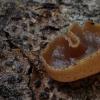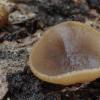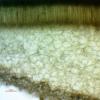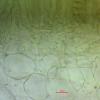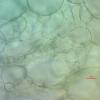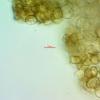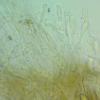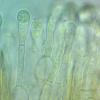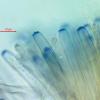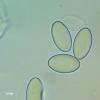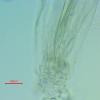
15-12-2025 15:48
 Danny Newman
Danny Newman
Melanospora cf. lagenaria on old, rotting, fallen

15-12-2025 15:54
 Johan Boonefaes
Johan Boonefaes
Unknown anamorph found on the ground in coastal sa

15-12-2025 21:11
 Hardware Tony
Hardware Tony
Small clavate hairs, negative croziers and IKI bb

15-12-2025 07:09
 Danny Newman
Danny Newman
indet. Rutstroemiaceae sp. on unk. fallen leavesMc

15-12-2025 07:05
 Danny Newman
Danny Newman
Pseudosclerococcum golindoi (det: Zotto)near Cosb

15-12-2025 11:49
 Danny Newman
Danny Newman
ITS sequences from the following two collections B

15-12-2025 12:34
 Danny Newman
Danny Newman
indet. Rhytismataceae on oak leafnear Purchase Roa

09-12-2025 12:06
 Andgelo Mombert
Andgelo Mombert
Bonjour,Je recherche l'article concernant Hypobryo
 Hello everybody,
Hello everybody,this Peziza was found last weekend in a mixed warm forest on a dead trunk of Populus, soc. Coriolopsis trogii, altitude cca 350 meters.
Apothecia up to 15 mm on average, sessile, thin tissue. Medullary excipulum of textura globulosa with cells over 100 µm on average, also with some pyriform and elongate cells, but no layer of text. intricata.
Asci 200–250 µm, croziers +, IKI with WTR reaction, ascospores ellipsoid, smooth, no guttules or granules, with hyaline perispore, Me = 17.8 × 9.6 µm; Qe = 1.9; N = 30.
I think this everything fits to P. ampliata, but some segments of paraphyses (not every paraphyse and if, then rarely the second last segment) are moniliform with wide up to 17 µm, typical for P. varia. The tip width 7,5–8,5 µm.
Subhymenium text. angularis, ectal excipulum text. globulosa with smaller cells.
Thanks for your help.
Marek

Thanks.
Marek

I am not a specialist of this group, but as I know (or heard, read) is that P. varia is very variable macro- and microscopically, and "species" like repanda and micropus have proved to be identical. Common species on wood remains, and I think you found this species.
P. ampliata (that I do not know well) is a species growing on the ground. In the moment, I cannot tell you the further differences to the varia complex. Somebody else can help, perhaps, or you must look it up yourself.
Yours, Lothar
Like Lothar, I am not a specialist in this topic but I will gladly share my observations.
Perhaps the concept of the species has recently been changed, but as far as I know, Peziza ampliata is a species growing on deciduous wood.
I met similar collections several times and decided to call them that. This species produces very thin and small fruiting bodies. I have most often met with a diameter of about 15 mm. Initially, a bowl shape but very quickly they become almost completely flat.
When identifying, I would not take into account the nature of the paraphyses because it depends on the weather and is not a feature of the species.
I also studied similar -looking collections growing directly on the soil several times. Apparently, I tested too few of them to define the differences, especially since they seem to be very similar. The collections from the soil came from colleagues so after reaching me they were not always in perfect condition so I had a slightly difficult task.
Regards
Mirek

Marek's collection might be P. ampliata based on the data.

Although P. varia is a highly variable species, it seems that a multi-layered excipular structure should always be present.
I read somewhere about the influence of external conditions on the shape of the paraphyses, but I did not attach such importance to it.
The possibility of terrestrial growth of P. ampliata is new to me.
Thanks again.
M.
